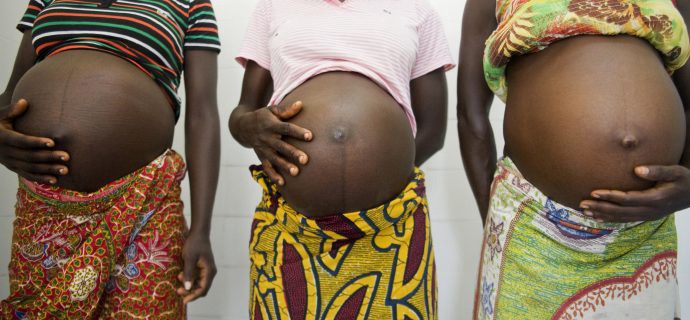Ghana needs ¢3.5 trillion to provide adequate nutrition to 850,000 pregnant women and more than 4,000 infants in the country.
The nutritional value should include multiple micro nutrient and calcium supplementation, exclusive breastfeeding of infants and improving complementary feeding interventions.
It is expected that adequate nutrition would reduce maternal deaths by 82 per cent and 16 per cent stunted growth in children under-five years and ultimately minimise infant mortality.
Currently, one out of every five children in Ghana is malnourished due to endemic poverty, especially in the northern parts of the country.
Dr Haruna Issahaku, a Senior Lecturer at the Department of Economics, University of Development Studies, made this known when he presented findings on a study to a seven-member Eminent Panel at the "Ghana Priorities Conference" in Accra on Sunday.
The event was organised by the National Development Planning Commission (NDPC), in collaboration with the Copenhagen Consensus Centre, an international think tank.
The conference will allow the Panel to critique 80 priority policy interventions using the cost-benefit analysis to provide government and the donor community with the most effective policy solutions to accelerate socio-economic growth.
Dr Issahaku said, for instance, it would cost government GHc203 million annually to provide multiple micro nutrition solutions to pregnant women.
Also, it would cost government ¢26 million per year by way of breastfeeding promotions and sensitisation programmes, in order for 174,000 mothers to undertake exclusive breastfeeding, which would save 745 infant lives annually.
The nutrition intervention, he said, would benefit the nation to the tune of ¢623 million and compel 43,000 extra mothers to undertake exclusive breastfeeding.
Dr Issahaku noted that should government invest one Ghana cedi in nutrition solution interventions, ¢24 would be accrued to the nation.
Meanwhile, Prof Charles Adjasi of the University of Stellenbosch Business School, South Africa, who presented a study on poverty interventions, outlined four measures to alleviate poverty in the country.
They are providing skills training to help individuals pursue economic activities that would earn them regular income, cash transfers to poor households, financial assistance to microfinance enterprises operated by poor households, and social housing or shelter to urban-poor households to enhance livelihoods.
Latest Stories
-
We have a bad technical team; Otto Addo and his team should go – Ernest Thompson
27 mins -
Hindsight: Why Accra Lions’ present problems do not define them
51 mins -
10-year-old Lisa Laryea arrives at Wits Donald Gordon Hospital in South Africa for bone marrow transplant
1 hour -
23 ambassadors inducted to take on 2025 GSTEP Challenge in three regions
2 hours -
Ghana Shea Workers Union inaugurated
2 hours -
I trust Bawumia; he has never lied to me – Akufo-Addo
2 hours -
Bawumia is hardworking; offers the youth platform to share ideas – Kow Essuman
2 hours -
IGP, Police commanders worship with churches in Ghana as part of security arrangements for 2024 elections
2 hours -
Mahama is a failed president; give Bawumia a chance – Akufo-Addo to Ghanaians
2 hours -
‘No child left behind in Free SHS’ – Akufo-Addo declares
3 hours -
MMDAs tasked to pay more attention to TB cases
3 hours -
2024/25 GPL: Defending champions Samartex suffer second consecutive loss as Basake Holy Stars wins 1-0
3 hours -
Government stands firm in Galamsey fight, says Akufo-Addo
3 hours -
National Peace Council assures public of violent free elections
3 hours -
Agenda 111 to be discontinued if NDC comes to power – Akufo-Addo
3 hours

